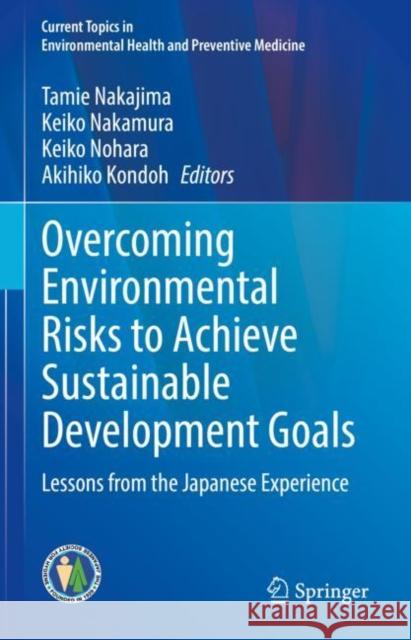Overcoming Environmental Risks to Achieve Sustainable Development Goals: Lessons from the Japanese Experience » książka
topmenu
Overcoming Environmental Risks to Achieve Sustainable Development Goals: Lessons from the Japanese Experience
ISBN-13: 9789811662485 / Angielski / Twarda / 2021
Overcoming Environmental Risks to Achieve Sustainable Development Goals: Lessons from the Japanese Experience
ISBN-13: 9789811662485 / Angielski / Twarda / 2021
cena 402,53
(netto: 383,36 VAT: 5%)
Najniższa cena z 30 dni: 385,52
(netto: 383,36 VAT: 5%)
Najniższa cena z 30 dni: 385,52
Termin realizacji zamówienia:
ok. 16-18 dni roboczych.
ok. 16-18 dni roboczych.
Darmowa dostawa!
This thought-provoking book examines how the accumulated knowledge on past and present environmental issues and risks within Japan can be applied in order to help deliver the transformation to a sustainable and well-being society. The book opens with a series of case analyses on environmental pollution events and pollution-related diseases within the country over the past half century or more. Lessons learned regarding the harm to society are highlighted. Diverse current environmental issues are then explored in detail, ranging from the management of hazardous chemical and asbestos exposure to marine plastic pollution and nuclear disasters. This discussion forms the basis for the final part of the book, which focuses on how progress can be made towards the Sustainable Development Goals set out in the United Nations’ 2030 Agenda for Sustainable Development. Important insights are also provided into future directions in human ecology and ecotoxicology. The book will be a valuable resource for both new and established researchers as well as for those seeking comprehensive information on environmental/occupational health and health promotion.











